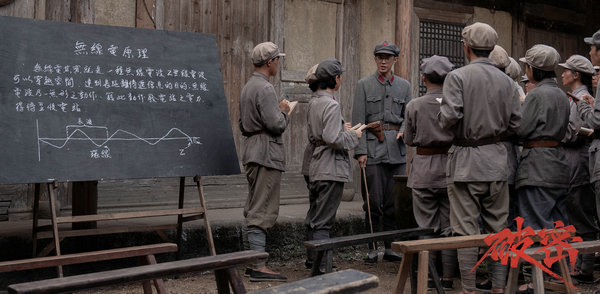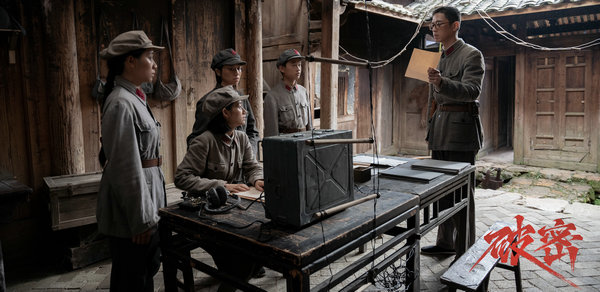

Nearly 90 years after the death of Cai Wei, a pioneer who helped establish the Red Army's radio communication network, a TV series adapted from stories about the revolutionary hero has earned high ratings, according to the show's producers at a recent seminar in Beijing.
Po Mi (Decoding), a 20-episode drama aired on CCTV-8 and multiple streaming platforms, has earned 101 million views, securing the highest ratings on China Central Television's TV show channel during its broadcasting period.
Chief producer Yuan Jingui, said that the drama came at the invitation of the government of Ningde in Fujian province, where Cai originated, and also satisfied the wishes of his descendants.
Born into a wealthy family in 1907, Cai joined the Communist Party of China in Shanghai in 1926, and was trained to use wireless radio sets the following year. He was assigned to establish the radio communication network at CPC's revolutionary base bordering the provinces of Hubei, Henan and Anhui in 1930, and trained recruits for the Red Army. He died during the Long March in 1936.

Cai concealed his identity and used a fake name while operating on the intelligence battlefield. Relatives back home were unaware of his death until 49 years later, when he was posthumously honored as a revolutionary martyr.
"He is a noble man and an unsung hero who deserves a TV series to commemorate him, and tell more people about him," said Yuan.
"As the son of an affluent businessman, Cai left behind a comfortable life to embark on a much tougher and life-threatening path in pursuit of his beliefs. He acquired a deep understanding of mathematics in college, and learned to ride horses and shoot after joining the revolution. Engaged in confidential operations, he severed contact with his wife and children," the emotional Yuan said, elaborating on his admiration for the martyr.
Liang Jingkang, who portrays Cai, said that it was his first time as lead in a biographical drama about a revolutionary hero.
He said that he and his fellow actors learned how to operate wireless radios, which aided them in better understanding their roles.